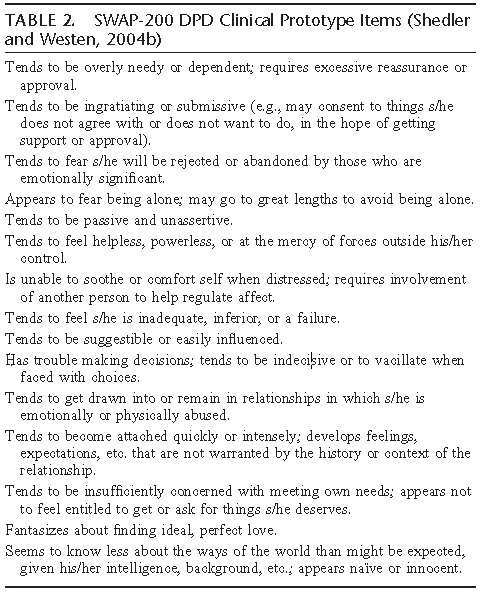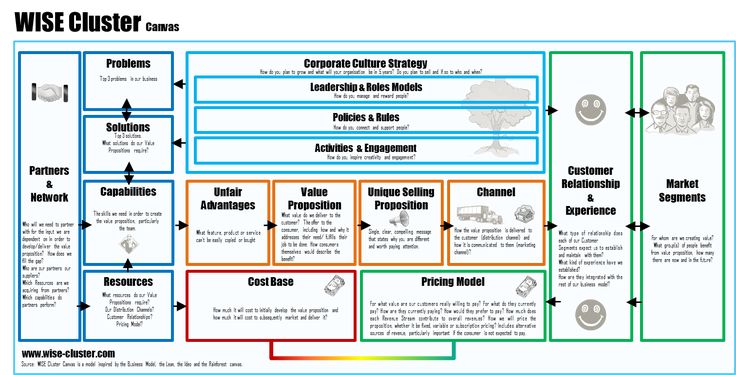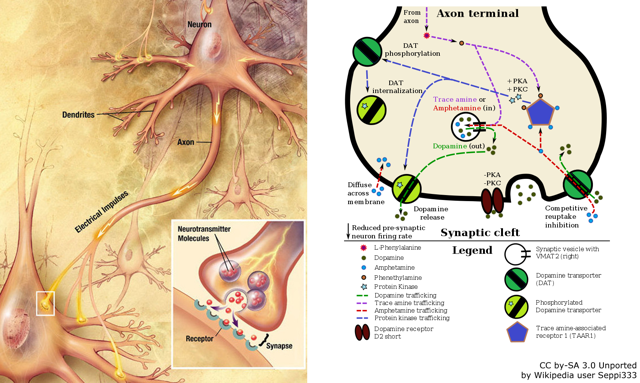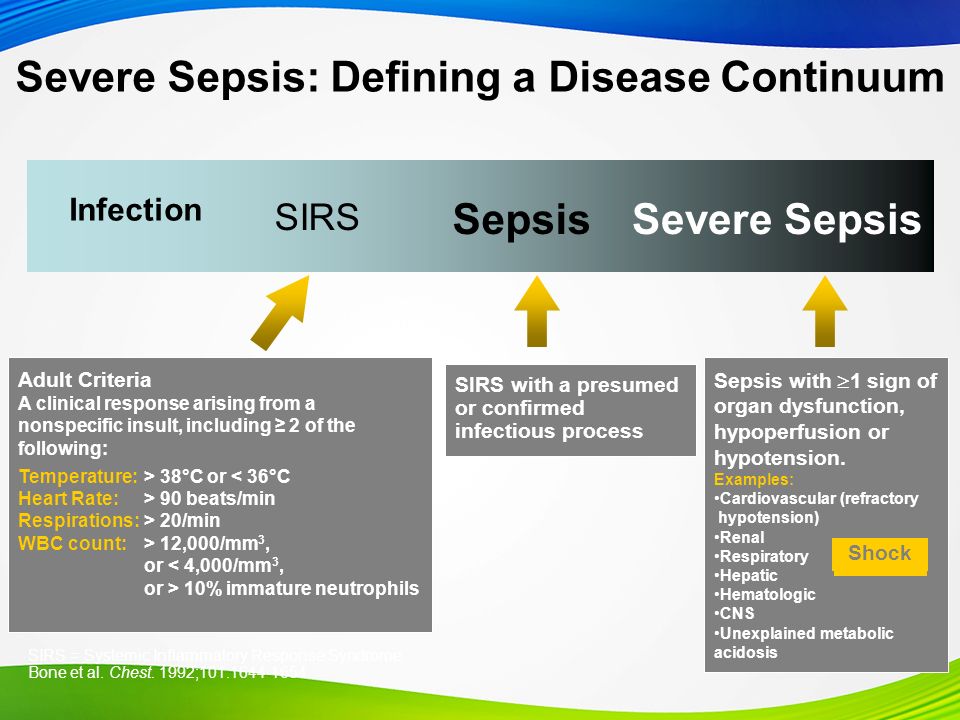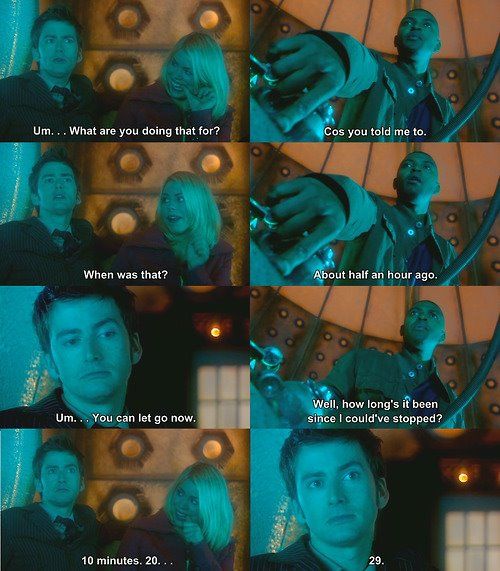Dependent personality disorder treatment self help
Dependent personality disorder treatment self help : tips and advice.
Interesting independent personality facts.
For someone with dependent personality disorder (DPD) life can be full of challenges and insecurities. Not being able to rely on yourself, for instance, creates a lot of stress and worry. When treatment is not (yet) an option for some people, a dependent personality disorder treatment self help page may be just the thing they need. Step by step we discuss dependent personality disorder treatment self help tips, tricks, and exercises that may come in handy.
This page is created for those people who have some DPD symptoms or have been diagnosed with moderate DPD. In case you have severe DPD, we strongly recommend you to contact a mental health professional for counseling. For those people who wonder whether or not they have DPD, we created a short and online DPD questionnaire.
Jump to:
- What is dependent personality disorder?
- What causes people to develop DPD?
- How is dependent PD diagnosed?
- What are DPD treatment options?
- The dependent PD test.
- Living with someone who has DPD.
- Interesting dependent PD facts.
- Online counseling for Dependent PD.
- Take me to the homepage.
Dependent personality disorder treatment self help – Reflect on your childhood.
A few important questions for someone with dependent personality disorder (DPD or dependent PD) to answer is: why and how did I develop DPD? Why do I need so much reassurance and why do I have such low self-esteem? And how did those early childhood experiences shape my adult behaviour?
The answers to these questions can help you understand a lot more about dependent PD, because they can reveal some of your biggest fears. These fears (e.g., fear of losing someone’s support; fear of being rejected) are the underlying motivations for your DPD-behaviour. Without these fears there would be no reason to behave the way you do.
These fears (e.g., fear of losing someone’s support; fear of being rejected) are the underlying motivations for your DPD-behaviour. Without these fears there would be no reason to behave the way you do.
In some cases these fears started after something traumatic happened (e.g., you have overprotective parents and one day when you did something without asking for their approval/permission things went horribly wrong) or after a long history of belittling comments. If this is the case, then eye movement desensitization and reprocessing (EMDR) treatment can help you get rid of these fears.
(Advertisement. For more information, please scroll down.)
Dependent personality disorder treatment self help tip:
- Write about your childhood and early adolescent experiences regarding the development of your self-esteem, the way your parents raised you, and the times you’ve been really rejected/abandoned.
 Analyze each situation and try to look at these events from different perspectives. This way you’ll get new insights and you may even start to realize that certain decisions had little to do with you. An example: having overprotective parents doesn’t mean you can’t do anything by yourself. It actually tells your parents were too concerned about your safety that they didn’t allow you to explore and play.
Analyze each situation and try to look at these events from different perspectives. This way you’ll get new insights and you may even start to realize that certain decisions had little to do with you. An example: having overprotective parents doesn’t mean you can’t do anything by yourself. It actually tells your parents were too concerned about your safety that they didn’t allow you to explore and play. - Talk to your parents about your childhood to see how they reflect on their behaviour and ask them if they could have done things differently. Sometimes this gives you more insight in their motivations to raise you the way they did, and it may give you more answers than you could provide yourself with.
Dependent personality disorder treatment self help – Make an action plan.
Now that you know what your biggest fears are, you need to neutralize these fears. The best way you can neutralize a fear yourself is by exposing yourself to that fear(ful event) in a safe and controlled environment. This way you learn that your feelings of panic and anxiety will reduce/disappear after approximately 10 minutes, and that (most likely) nothing bad has happened to you. But first things first.
This way you learn that your feelings of panic and anxiety will reduce/disappear after approximately 10 minutes, and that (most likely) nothing bad has happened to you. But first things first.
You need to practice becoming more independent and needing less reassurance from others. And to do that you need to make an action plan to work with in the near future. An action plan gives you clear goals and tells you how to achieve these goals.
Dependent personality disorder treatment self help tip:
- Create a list of things you fear doing or things you need a lot of reassurance for before you can do them.
- Categorize your fears in groups: fears at work, at home, among friends, during activities.
- Write down how you can tackle each fear by creating a goal for each of these fears: what would you achieve?
- For each goal write down a few exercises to practice with. Practice makes perfect, you’ll see!
- Plan your exercises in such a way that you’ll experience as little pressure or stress as possible.
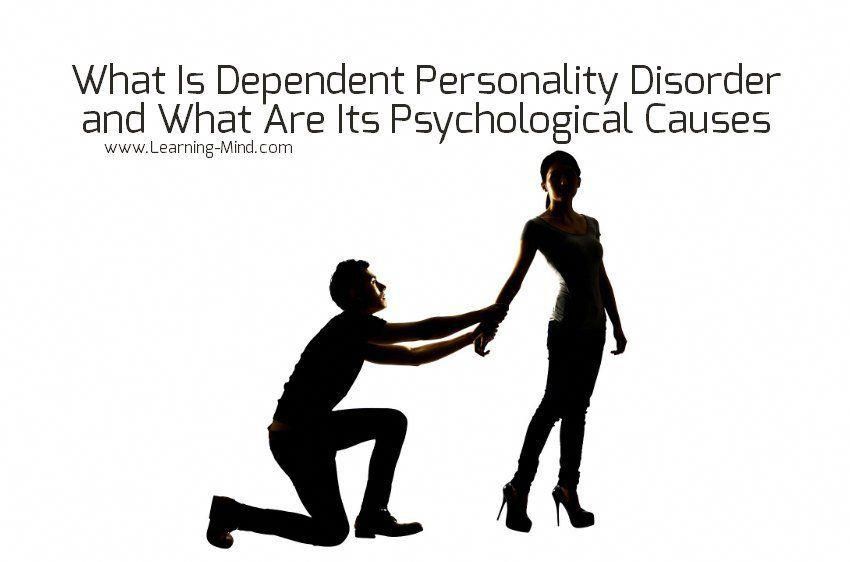 For example, go to work early, before anybody else is there, to practice with some tasks.
For example, go to work early, before anybody else is there, to practice with some tasks.
Note: We strongly recommend you to discuss your action plan with a mental health professional who is specialized in treating dependent personality disorder. If your exercises are too difficult you may not be able to make (much) progress at all. This will have a negative impact on your self-esteem and that can worsen your DPD symptoms.
(Advertisement. For more information, please scroll down.)
Dependent personality disorder treatment self help – Practice and evaluate progress.
By now it’s time to start practicing. This means you pick one or two exercises a day and try to practice them. Remember: you are practicing so you are allowed to make mistakes. All you need to measure is progress. Did you make a little bit of progress? If so, then you did a great job! If you have the feeling you didn’t make progress, then you may want to evaluate to see where you could improve things.
It’s possible that your emotions are so overwhelming that you have the feeling you didn’t do the exercise that well, regardless of how it actually went. Emotions can easily trouble our judgment. In this case write down when you make progress with an exercise and how to measure it.
Dependent personality disorder treatment self help – Expressing emotions/opinions.
Expressing emotions and opinions can be very, very difficult for people with DPD. The fear of being abandoned, rejected or to lose support can be so overwhelming that it’s easier to stay silent and agree with the other. For most people with dependent DP it’s a goal to be able to express emotions and opinions. The best way to practice this is to turn to someone you trust a lot. Depending on your childhood experiences, this can be your parent or your best friend. By explaining your situation and the fact that you need to practice standing up for yourself and expressing your emotions, you create a safe situation to practice in.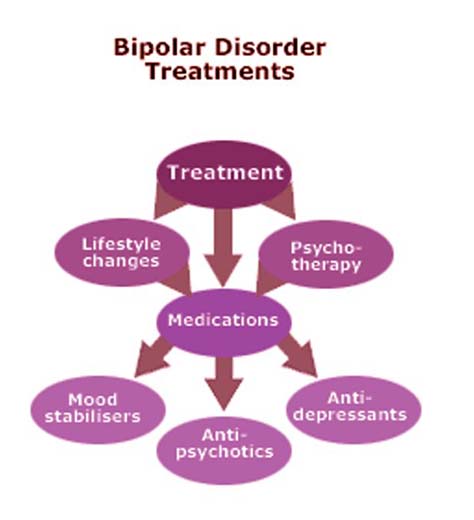 Your parent/friend understands what the purpose is and can give you feedback in a constructive way. Each time you succeed, it reinforces positive behaviors.
Your parent/friend understands what the purpose is and can give you feedback in a constructive way. Each time you succeed, it reinforces positive behaviors.
If you have the feeling you can’t trust anyone enough to practice with it may be a good idea to turn to a mental health professional.
The Treatment That Gave me my Freedom – Bridges to Recovery
March 19, 2019, Mary Ellen EllisBridges to Recovery
Dependent personality disorder (DPD) is a pattern of thoughts and behaviors characterized by needing to be taken care of by others, fear of being rejected or alone, low self-esteem and self-confidence, difficulty making decisions independently, and generally being unable to manage responsibilities. DPD causes significant dysfunction, but it can be managed with therapy that helps develop self-esteem, independence, and better relationship skills.
I have always struggled to be independent. I love to have other people take care of me, and I doubt every decision I make on my own. I was recently diagnosed with dependent personality disorder. I didn’t believe it until I delved into therapy during treatment.
I was recently diagnosed with dependent personality disorder. I didn’t believe it until I delved into therapy during treatment.
I learned that my patterns of negative thoughts about myself were damaging but that I could change them. I learned to trust myself, to be more confident in my abilities, and to have healthier relationships with my family, friends, and romantic partners.
Dependent personality disorder, or DPD, is one of several types of personality disorders. A personality disorder is a mental illness characterized by stubborn, abnormal, and unhealthy thoughts and behaviors. These negatively impact functioning in relationships, in social situations, at work or school, and in other situations.
One of the most damaging aspects of personality disorders is that when you’re experiencing one, it is extremely difficult to see that there is anything wrong with the way you think or behave. This is why it took me so long to get treatment for DPD. What my family saw in me that eventually led to a diagnosis was:
- Neediness
- An inability to make decisions without their input
- Difficulty spending any time alone
- Avoiding responsibility for even the most basic things
- Difficulty functioning independently
- A need to please everyone around me
- A deep fear of being abandoned by them
- Poor self-esteem and low self-confidence
- Complete devastation after the end of a relationship with a boyfriend
- Allowing a boyfriend to be emotionally abusive
It was this last sign of DPD that broke my parents and finally pushed them to push me to get help.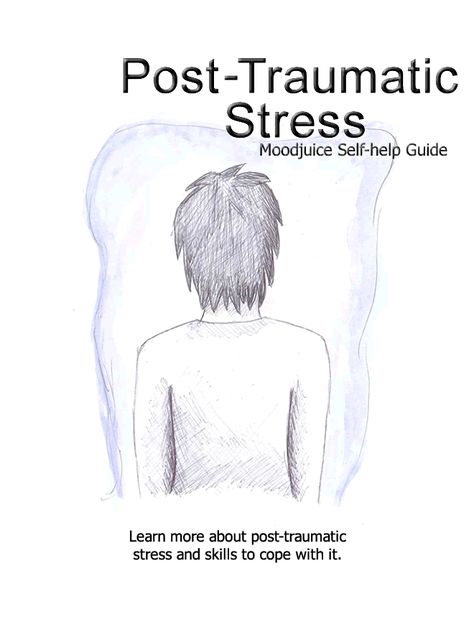 I have always felt as if I need the validation and support of other people in order to do anything. I thought if I didn’t have a relationship I would be lost. So when my last boyfriend got really mean, and even hit me a couple of times, I let him.
I have always felt as if I need the validation and support of other people in order to do anything. I thought if I didn’t have a relationship I would be lost. So when my last boyfriend got really mean, and even hit me a couple of times, I let him.
I received a diagnosis of DPD because my patterns were clear: I thought I needed other people to meet my emotional needs; I feared being alone or doing anything without someone else’s help; I had no confidence in myself at all; and I let others walk all over me.
What Pushed Me to Get Treatment
It was the end of my last relationship that convinced me to get help. While my parents had been pushing me for a long time before that, I didn’t see what they saw. When my boyfriend left me, I sank into a serious depression for a couple weeks. I found I couldn’t function alone and had to go home to stay with my parents.
Realizing that I could not live alone and that I had allowed by boyfriend to treat me badly finally pushed me to follow my parents’ advice and see someone for a diagnosis.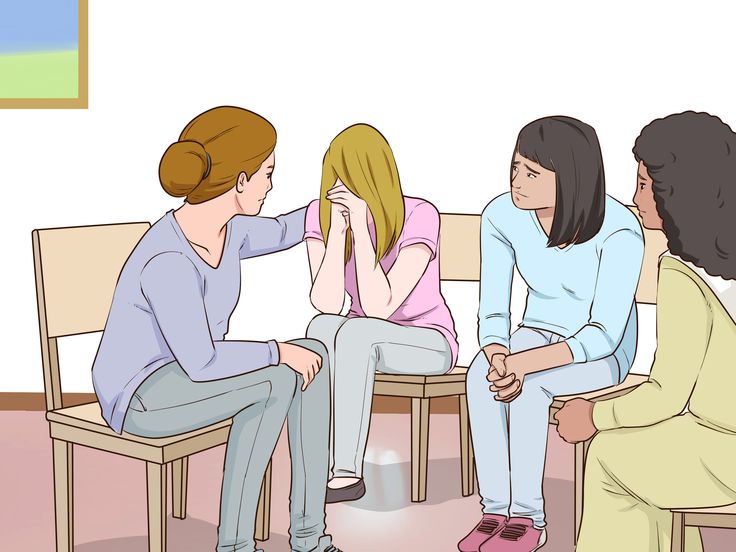 Even then, I didn’t really think there was anything wrong with me. It’s only after treatment that I see more clearly how damaging my relationships and choices were. I recommend anyone in a similar situation listen very carefully to what their loved ones say. They see your harmful behaviors better than you do.
Even then, I didn’t really think there was anything wrong with me. It’s only after treatment that I see more clearly how damaging my relationships and choices were. I recommend anyone in a similar situation listen very carefully to what their loved ones say. They see your harmful behaviors better than you do.
Choosing Residential Treatment for DPD
My parents were so supportive, and it was natural for me to rely on them to find a solution to my problem. After getting the diagnosis of DPD, they gave me options for treatment but insisted I make the final choice. I went with residential treatment. To be honest, it was because I knew it would mean being surrounded by caregivers.
My motives and reasoning weren’t perfect, but residential treatment turned out to be the best decision I could make. I really benefited from several aspects of this kind of care, including being able to leave all other responsibilities at home and focus on my own well-being in a safe place.
It was also really useful to be around other people struggling with similar issues. I learned in treatment that my approach to relationships was highly flawed. Being in a supportive, social environment in treatment really helped me practice building better relationships and social skills.
Causes of Dependent Personality Disorder
One of the aspects of treatment that really helped motivate me to make positive changes was coming to a better understanding of what may have contributed to my personality disorder. My therapist helped me connect some of the natural aspects of my temperament and how I was as a child with the DPD that I later developed.
As a kid, I struggled with anxiety disorder, and so did my mom. I was afraid of new things and very cautious. I tried to avoid what scared me, like going to school, making new friends, trying a new sport, or being without my parents. My dad tended to push me to try new things, but my mom, cautious like me, often gave in and let me stay home a lot.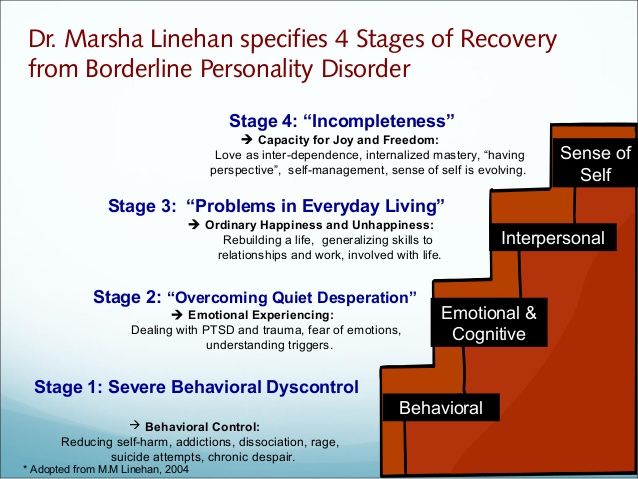 Now I can see how she sheltered me and was overly protective. No one really knows what causes DPD, but these kinds of personality traits I had, the relationship with my mother, and my anxiety probably contributed.
Now I can see how she sheltered me and was overly protective. No one really knows what causes DPD, but these kinds of personality traits I had, the relationship with my mother, and my anxiety probably contributed.
Begin Your Recovery Journey.
877-727-4343Therapy – The Best Treatment for Dependent Personality Disorder
I learned in residential care that there is no cure for a personality disorder and no medication for it. I also learned that the best way to manage DPD and change my negative thought and behavior patterns was to work through all my issues with a good therapist. Immediately I was eager to please and wanted to let my therapist take care of me, but what she helped me realize was that I needed to do the work myself. She was simply my guide.
We worked mostly with cognitive behavioral therapy. My therapist helped me explore my past and how that contributed to DPD, but also how my choices as an adult made my symptoms worse. With this therapy I had concrete things I could do, steps to take to make real changes to the way I think about myself and relationships to others.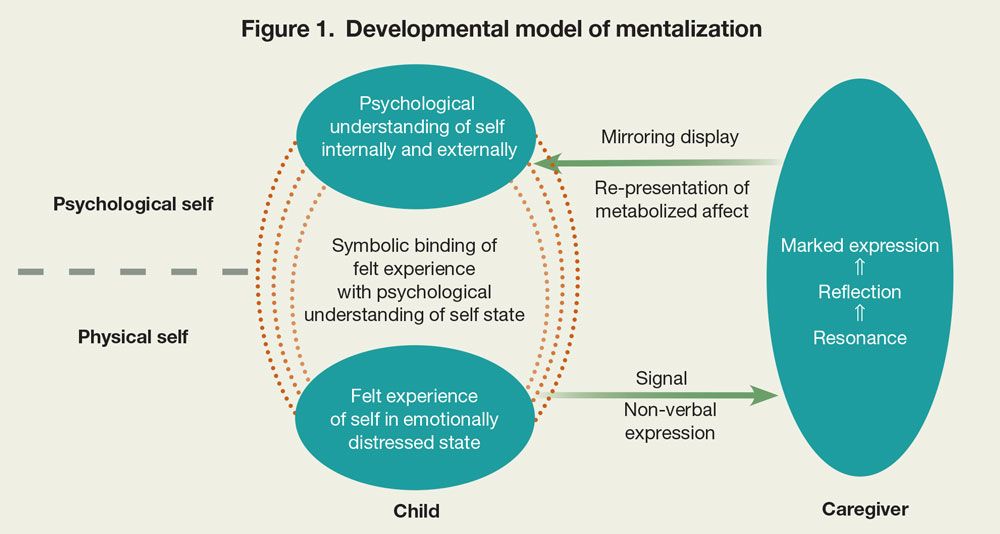 From these changes I could then take action to do things differently and make better choices.
From these changes I could then take action to do things differently and make better choices.
In treatment, I practiced being more assertive, making decisions on my own, including choices about my own care, and reacting in more productive ways to other people and developing positive new friendships.
I also benefited from taking charge of other aspects of my well-being. I learned how to cook and make healthy food choices. I learned how to meditate and do yoga to cope with anxiety. I even went on an adventure therapy session, something I would never have done before treatment. All of this helped build my self-confidence and prepared me to be more independent going back home.
DPD has been a difficult condition to live with and to manage. But with treatment I feel hopeful about my future. I moved out of my parents’ house two months ago and have been single and comfortable living alone and not being in a relationship. Sometimes I still slip up, and I try to get my parents to make decisions for me, but then I remember what I learned in treatment and what I’m capable of, that I can trust myself to be independent.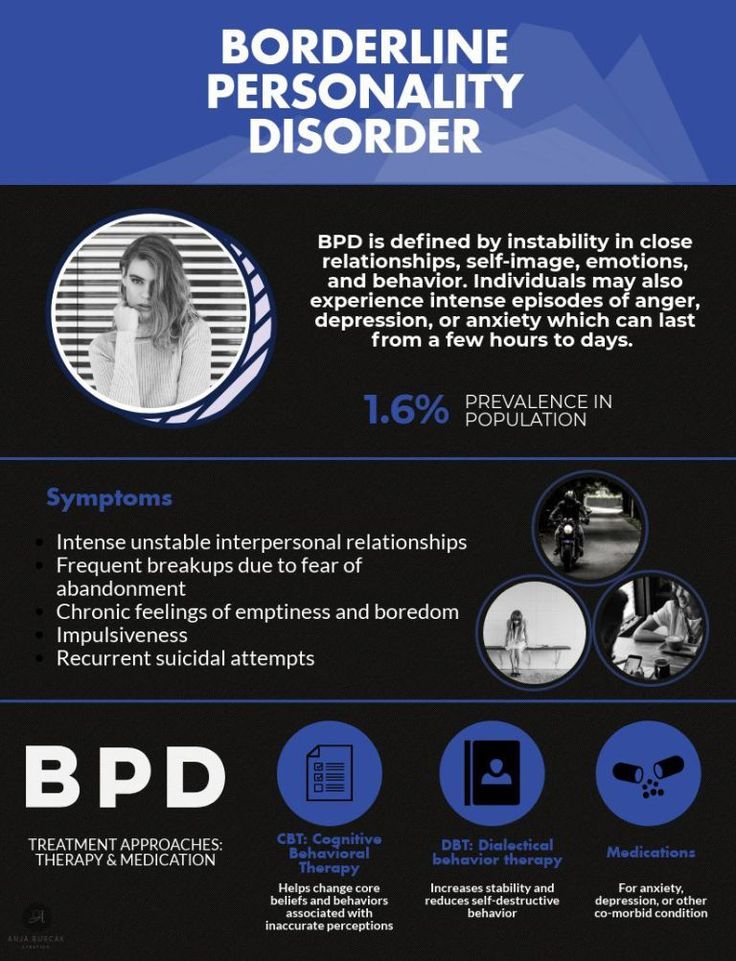
Bridges to Recovery offers comprehensive treatment for people struggling with mental health disorders as well as co-occurring substance use disorders. Contact us to learn more about our renowned Los Angeles programs and how we can help you or your loved one start on the path to lasting wellness.
How to Stop Dependent Personality Disorder from Blooming
July 6, 2021LikbezHealth
If you've grown up a long time but still can't live without care, it might be time to see a doctor.
Share
0 You can also listen to this article. If you feel more comfortable, tune in to the podcast:
What is Dependent Personality Disorder
This is a mental disorder F60.7 Dependent personality disorder / International Statistical Classification of Diseases and Related Health Problems (ICD-10). People with dependent personality disorder find it difficult to make any decisions on their own, so they obey others.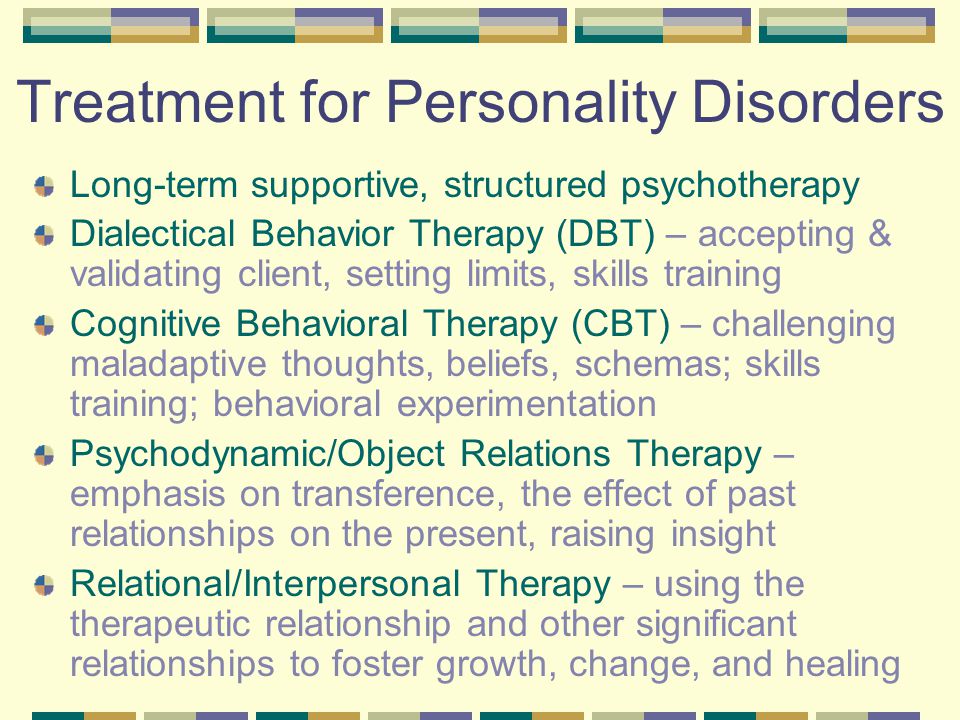 They often shift responsibility to someone else, are afraid to be alone, feel helpless and put other people's desires above their own.
They often shift responsibility to someone else, are afraid to be alone, feel helpless and put other people's desires above their own.
Usually this deviation is found in Dependent Personality Disorder / WebMD in young people. Both men and women suffer from it.
Other problems may come along with the disorder. Dependent Personality Disorder / WebMD: depression, phobias, anxiety, substance abuse. Sometimes people become victims of abusers. This is because, due to the fear of loneliness, it is difficult for them to part with a dominant partner.
Where does dependent personality disorder come from
No one knows for sure, but scientists suggest that it appears Dependent Personality Disorder / Cleveland Clinic due to developmental and biological factors. For example, a person who grew up in strictness or overprotectiveness, in childhood was often ill and anxious due to separation from someone, is more at risk of experiencing a disorder.
How to recognize dependent personality disorder
The Diagnostic and Statistical Manual of Mental Disorders lists eight main symptoms Dependent Personality Disorder (DPD) / MSD Manuals. To suspect a dependent personality disorder, it is enough to notice five signs.
1. Difficulty making everyday decisions
A person with a dependent disorder often needs someone else's advice or guidance. For example, he may depend on a spouse who tells you what to wear, where to work, and who to hang out with.
2. The need to shift responsibility for one's life to another
People with disabilities consider themselves inferior and think that they cannot take care of themselves on their own. They become followers in order to get others to patronize them. Any criticism is perceived as proof of its failure.
3. Fear of disagreeing
If the opinion of a person with this disorder differs from someone else's, it will be difficult for him to express himself.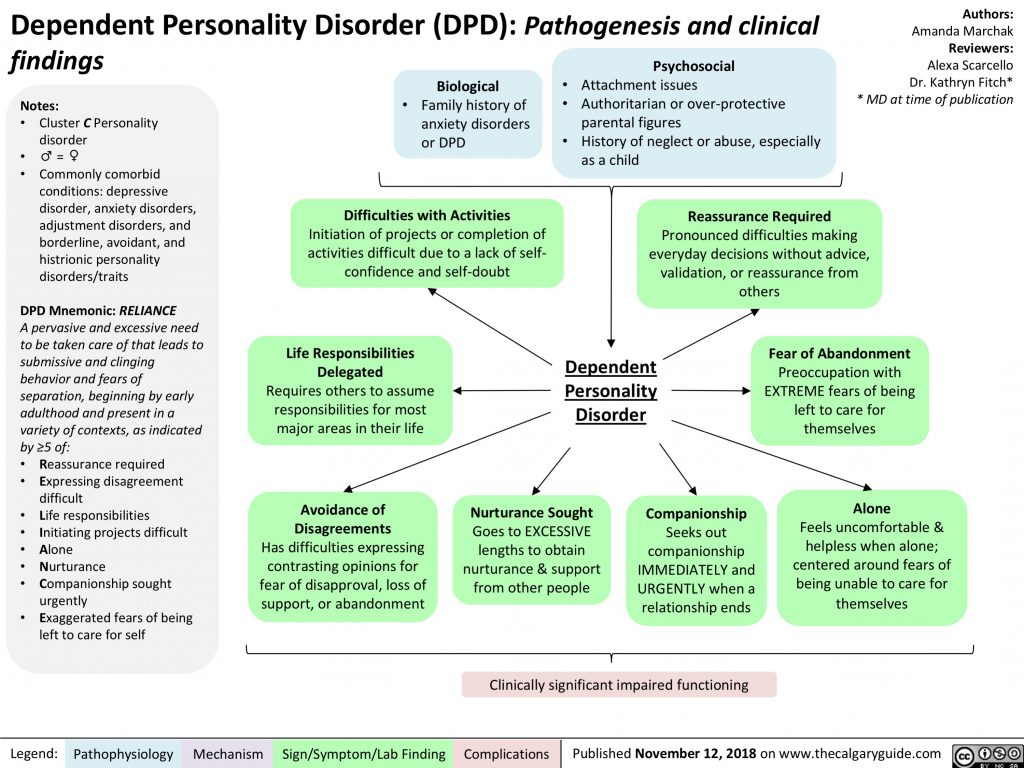 Because of the fear of losing approval, he is more likely to agree with what he does not like. Moreover, for fear of losing support, he will not be angry with his loved ones, even if anger is appropriate.
Because of the fear of losing approval, he is more likely to agree with what he does not like. Moreover, for fear of losing support, he will not be angry with his loved ones, even if anger is appropriate.
4. Difficulties with own projects
People with this disorder believe that they cannot do anything alone. Therefore, it is difficult for them to work independently or take on tasks that require personal responsibility. They consider themselves incompetent and seek someone's help. If the boss controls or approves, the person with a dependent disorder is more likely to act appropriately. But because of the fear of being abandoned, he is unlikely to have a desire to become a professional himself.
5. Willingness to make big concessions
Dependency disorder can cause a person to endure physical and emotional abuse, agree to unreasonable demands, and take on unpleasant assignments. He thinks that being submissive will help him get support.
6. Discomfort from loneliness
Staying with oneself is unpleasant for a person. He feels helpless and afraid that he won't be able to take care of himself.
He feels helpless and afraid that he won't be able to take care of himself.
7. Tendency to establish relationships with those who will help
People with the disorder tend to enter into relationships with those they can depend on. When the relationship ends, they immediately look for a replacement partner. The need for care leads to promiscuity.
8. Fear of being alone
Even if the threat of being left alone is unrealistic, a person with a dependent disorder will still be afraid of losing their "guardian".
How Dependent Personality Disorder is Treated
Most often, people are not even aware of the disorder. They ask for help Dependent Personality Disorder / WebMD, when problems arise that cannot be dealt with alone. For example, depression or anxiety.
If the patient has signs of a dependent disorder, the therapist begins the examination. First, he collects an anamnesis and conducts a basic examination. Sometimes people are sent for tests.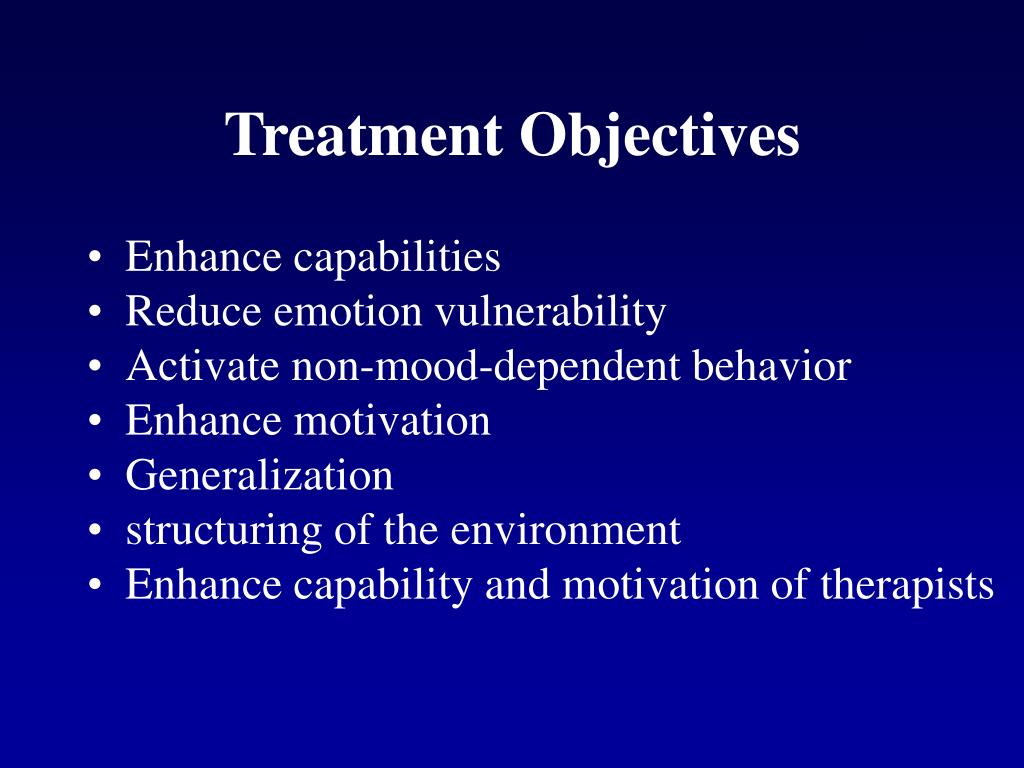 This is necessary to exclude physical diseases, due to which the symptoms of the disorder may also appear.
This is necessary to exclude physical diseases, due to which the symptoms of the disorder may also appear.
The next step is a visit to a psychotherapist or psychiatrist. These specialists have questionnaires and tests to diagnose disorders. But even here it is not so simple. It is easy to confuse dependent disorder with borderline because of the similar symptoms. But still there are differences. For example, people with the first type, because of the fear of loneliness, become submissive or look for new relationships, with the second, they react with anger, they have a feeling of emptiness.
A psychiatrist or psychotherapist prescribes therapy when an accurate diagnosis is made.
Psychotherapy
This is the main Dependent Personality Disorder Treatment / Psych Central treatment that helps people with a dependent disorder become more active and build normal relationships with others. There are several suitable types of psychotherapy.
- Social skills training.
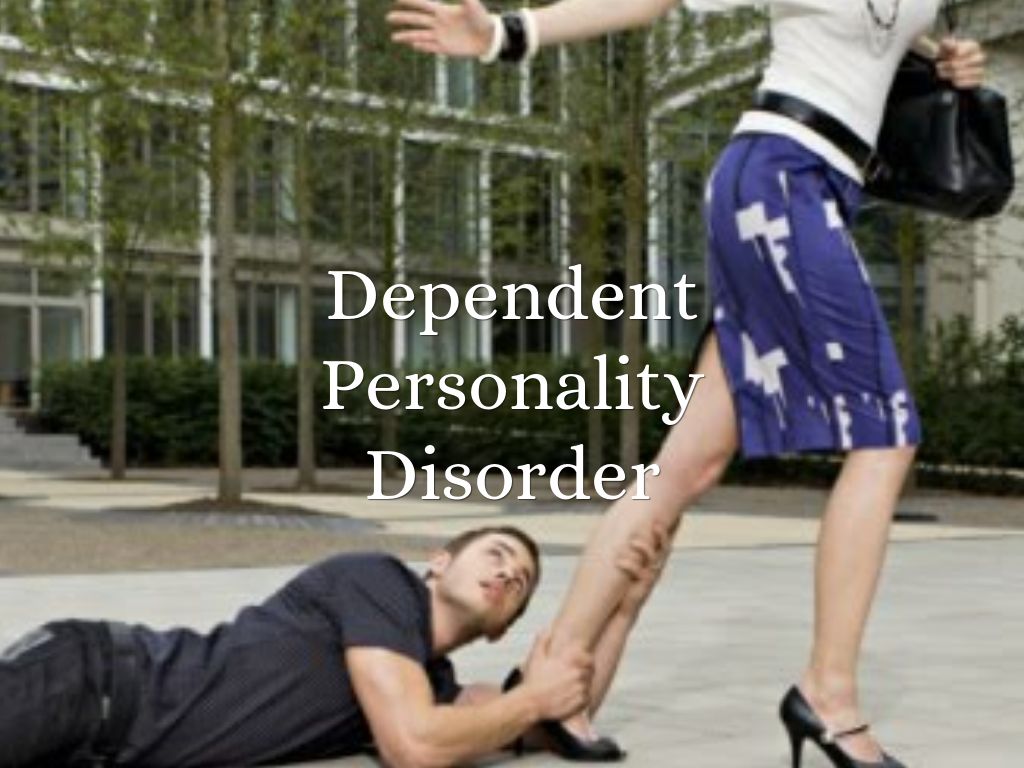 Helps to understand verbal and non-verbal cues during communication, keep a conversation going and communicate with confidence. In therapy, the patient may be offered role-playing games and simulations. This type of treatment is often combined with others.
Helps to understand verbal and non-verbal cues during communication, keep a conversation going and communicate with confidence. In therapy, the patient may be offered role-playing games and simulations. This type of treatment is often combined with others. - Cognitive behavioral therapy. Needed by patients to become more self-confident. In the classroom, people with a disorder try to change their opinion of themselves and their abilities, struggle with destructive beliefs and fear of judgment.
- Circuit therapy. Based on the fact that a person has a set of behaviors that he repeats throughout his life. Some of them may turn out to be maladaptive, that is, incorrect. Treatment aims to reinforce healthy patterns and eradicate unhealthy ones. Another psychotherapist may emphasize the re-education of the patient in order to meet his childhood needs. For example, a doctor will praise, set limits, and provide secure attachment.
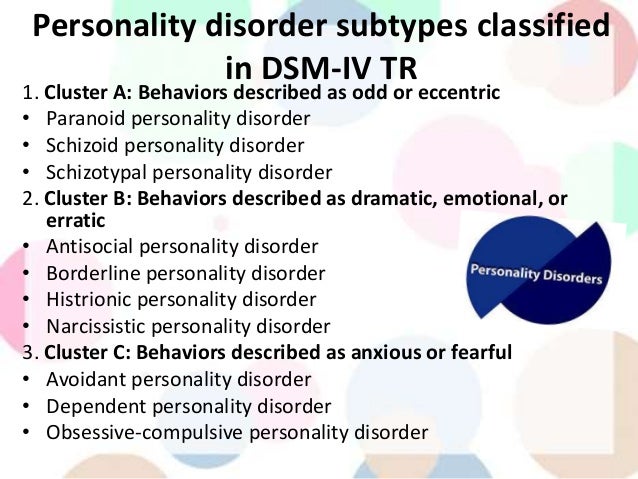 Also during therapy, a person with a disorder gains knowledge about basic needs, functional and dysfunctional behavior.
Also during therapy, a person with a disorder gains knowledge about basic needs, functional and dysfunctional behavior. - Mindfulness-based cognitive therapy. Helps to assess yourself and your strengths. Patients who underwent therapy learned to be more attentive to their hunches, emotions, and communication with others. For example, some people realize that “I am helpless” or “I am weak” attitudes are just thoughts, not facts.
Medications
Doctors rarely Dependent Personality Disorder (DPD) / MSD Manuals prescribe drugs to treat a dependent disorder. But if a person has anxiety or depression, they may be prescribed monoamine oxidase inhibitors or selective serotonin reuptake inhibitors.
How to help yourself if you have a dependent personality disorder
Psychotherapy is the best way to get rid of the disorder. But treatment can be supplemented with self-help. Here are some Dependent Personality Disorder Treatment / Psych Central tips to help you get over your dependent personality disorder faster.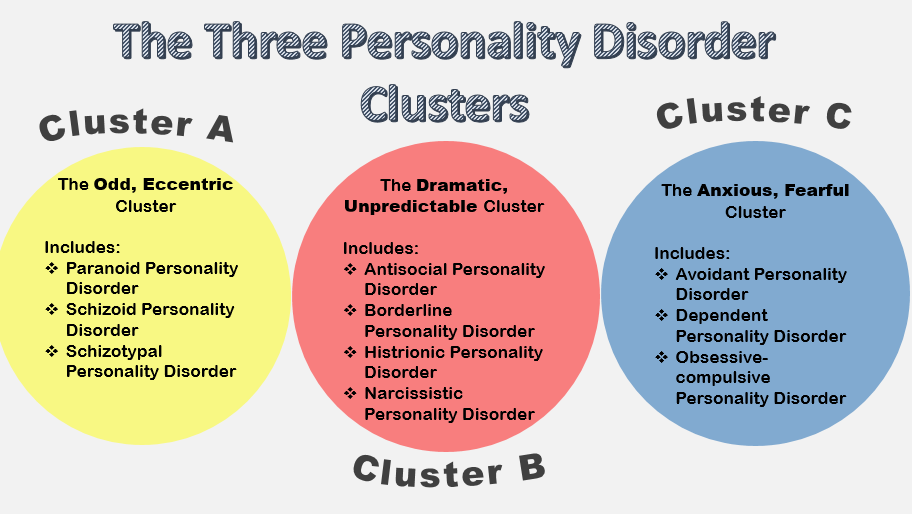
Enjoy your company
Think about what you can do when you are alone. It could be yoga classes, ten minutes of meditation, or reading a book during your lunch break.
Pick up a hobby
Ask yourself some questions. What would you like to know about? What brought you joy as a child? What subjects did you like the most at school? Perhaps the answers will tell you what you would be interested in doing in your free time.
Maintain your independence
Make a list of things someone else does for you. Then find one small task that you can take on. Consider this an opportunity to grow, hone your skills, and build your confidence.
Develop a healthy relationship with yourself
Start small: think about what you like about yourself and give a compliment. Relax and get some sleep. Try self-compassion meditation to accept your shortcomings and stop criticizing yourself.
Read also 😣😮😫
- 14 Early Symptoms of Bipolar Disorder You Shouldn't Ignore
- How to recognize and deal with Histrionic Personality Disorder
- 9 Obsessive-Compulsive Disorder Symptoms You Shouldn't Ignore
- When passive aggression turns into a personality disorder and what to do about it
- How to recognize alcoholism, depression and other mental disorders
I don't want to decide anything.
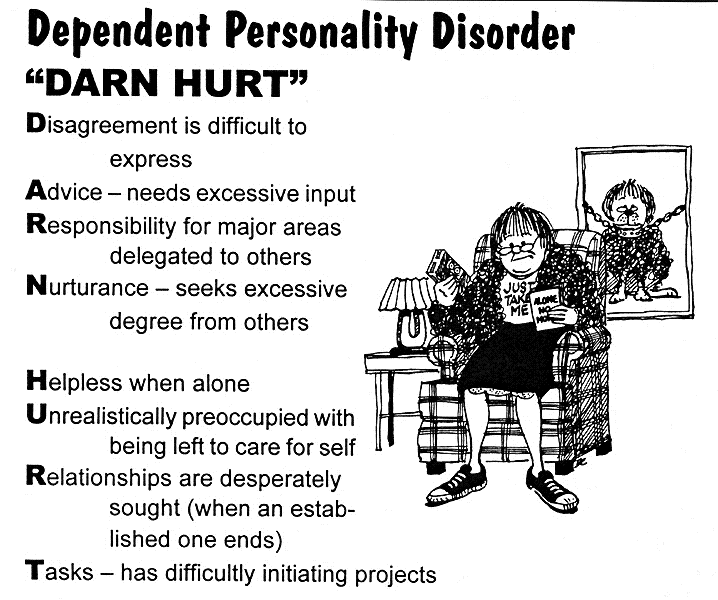 How dependent personality disorder manifests itself - Daria Varlamova - Psychology - Site materials - Snob
How dependent personality disorder manifests itself - Daria Varlamova - Psychology - Site materials - Snob “Dependent personality disorder should not be confused with addiction – dependence on drugs, alcohol, gambling, etc.,” explains psychotherapist Denis Bukin. “But this is exactly the case when the similarity in the name betrays the similarity in essence. It is indeed common for people with an addictive disorder to become alcoholics or drug addicts, whether they use psychoactive substances themselves or are married to an alcoholic or drug addict. It remains to be seen which is worse, but an addicted woman feels more confident when she lives with an alcoholic. Firstly, she is afraid of independence, which means it is better with an alcoholic than alone. Secondly, no one needs an alcoholic anymore, he won’t leave for another. However, the same applies to wives whose husbands show aggression and violence in the family: most often, the same dependent women turn out to be victims of domestic tyrants.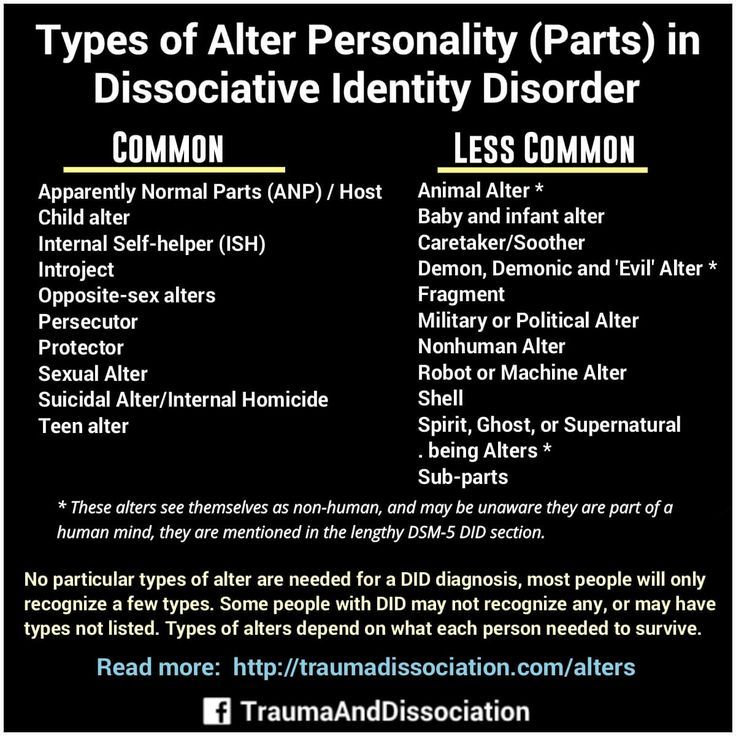
People with dependent personality disorder are weak-willed, passive and long for an alliance with a strong person who will decide everything for them. Not always uncertainty in one's abilities reaches the stage of personality disorder - often these traits are present only at the level of accentuation (that is, a certain bias in character, noticeable, but not much hindering adaptation in society). The difference between a healthy person who is prone to excessive dependence on others and a person with a personality disorder is, unfortunately, largely subjective, unlike many other disorders where diagnostic criteria are more clearly expressed.
In addition, society's notion of the distribution of gender roles plays an important role here. A woman who, from the point of view of the Eastern patriarchal society, is quite mentally healthy and functions perfectly, may turn out to be completely unadapted to life in a country where gender equality operates.
If we start to analyze the situation from a sociocultural point of view, the age-old question about the chicken and the egg pops up: whether it is society that breeds women who tend to rely on a strong male shoulder in all incomprehensible situations, or whether women with such a temperament help to form and maintain the patriarchal system and erect weakness into a cult.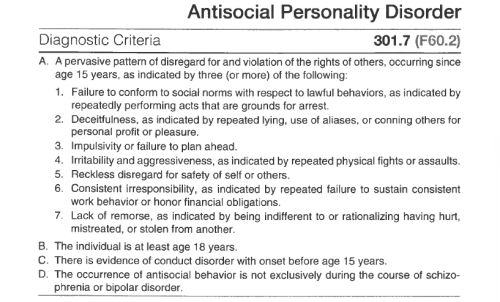
Most likely, the process goes both ways. One way or another, this type of personality disorder is found somewhat more often in women, although it has not been proven that this is an objective biological difference, and not a consequence of social norms: after all, a man who declares: “I am a boy, I don’t want to decide anything” is condemned will be much more likely than a woman with a similar attitude.
For a person to be diagnosed with dependent personality disorder, they must have at least three of the following symptoms.
- The desire to pass on to others most of the important decisions in life. Next to such a person, there is usually a parent or spouse who dictates to him which university to enter, what job to get, and what choice to make in any critical situations.
- It is very difficult to receive guardianship and care from others and at the same time retain the ability to defend one's own point of view: few people will agree to babysit an adult who also argues.
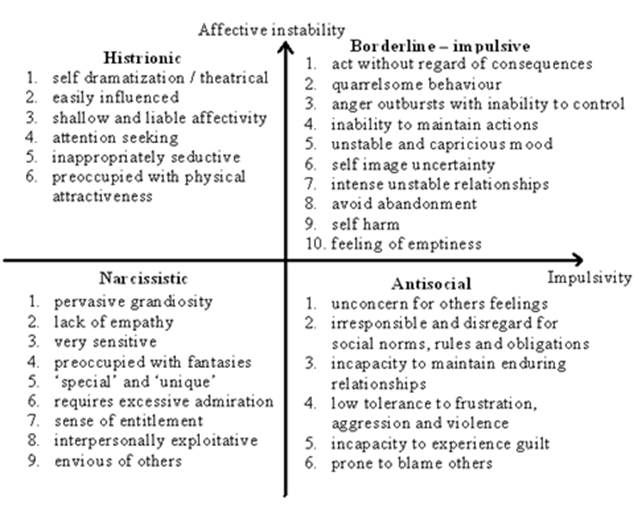 Therefore, the second important sign of a dependent person is inadequate subordination of one's needs to the needs of others. “Anxiety is a constant companion of a dependent disorder,” emphasizes Denis Bukin. - Afraid of being alone, a person passively accepts any circumstances of life, if only someone was nearby. If he ever had his own interests, he had long forgotten about them. Because if he declares his desires, what if he gets fired?! Will the husband leave? Will the parents turn away? So gradually a dependent person is at first afraid to talk about his desires, and then loses the very ability to desire anything.
Therefore, the second important sign of a dependent person is inadequate subordination of one's needs to the needs of others. “Anxiety is a constant companion of a dependent disorder,” emphasizes Denis Bukin. - Afraid of being alone, a person passively accepts any circumstances of life, if only someone was nearby. If he ever had his own interests, he had long forgotten about them. Because if he declares his desires, what if he gets fired?! Will the husband leave? Will the parents turn away? So gradually a dependent person is at first afraid to talk about his desires, and then loses the very ability to desire anything. - Unwillingness to make even reasonable demands on people on whom the individual is dependent - the person is so afraid of being "left behind" that he avoids any disputes that, in his opinion, may cause conflict.
- Feeling uncomfortable or helpless in being alone due to excessive fear of being unable to live independently. Such a person will tolerate even the most unpleasant relatives or neighbors for the sake of the opportunity to ask for advice or get help in everyday life.
 If such a person is faced with some everyday problem, he will most likely start to panic and call his acquaintances instead of, for example, looking for a solution on the Internet.
If such a person is faced with some everyday problem, he will most likely start to panic and call his acquaintances instead of, for example, looking for a solution on the Internet. - Strong fear of being abandoned. It is clear that no one likes this, and in the vast majority of cases, this affects self-esteem to one degree or another. But for an addict, “I can’t do without him” is not an exaggeration at the peak of emotions, but a completely normal assessment of their chances of survival.
- Limited ability to make everyday decisions without constant advice and encouragement from others. This is not about existential dilemmas like "To be or not to be?", but about the simplest things like "Which T-shirt to wear today?" or “Which dessert to choose from the restaurant menu?” - in such situations, a person can freeze so much that, for example, he will be late for an important event.
Plus, a person's condition must meet the general criteria for a personality disorder: that is, he must be chronically prone to an abnormal style of behavior, this must cause disharmony and stress in various areas of life and interfere with effective work and building relationships with society.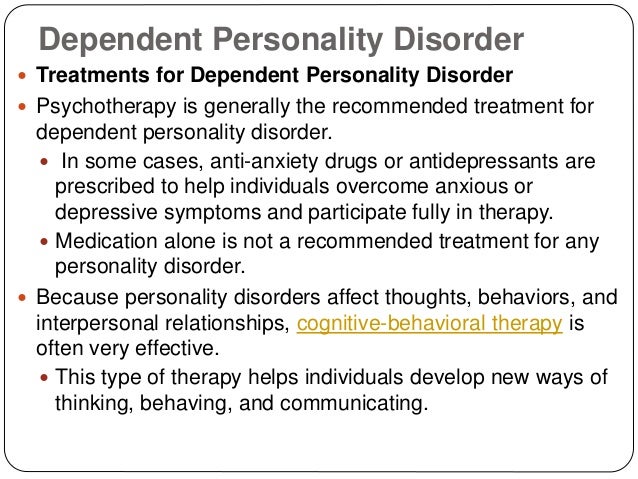
According to a number of symptoms, a dependent disorder can be confused with a borderline one: both patients are very afraid of being abandoned and react inadequately, as soon as they suspect their neighbors of the intention to get rid of them. But there is a difference: for the “border guard”, the fear of loneliness will manifest itself in anger and a feeling of emptiness. At the same time, he can act in different ways - he can preventively begin to ask for forgiveness for all imaginary sins, or he can lash out with reproaches or even provoke a break himself first. A person with a dependent personality type usually accepts such a prospect more humbly, but immediately begins to look for new co-dependent relationships.
Where does it come from
“Any personality disorder is a “way of living”, which, on the one hand, appears due to innate inclinations, on the other hand, is assimilated as a lifestyle in the parental family,” says Denis Bukin. - There is no generally accepted opinion about the causes of addictive disorder: physiologists talk about the features of the brain, psychoanalysts - about family relationships.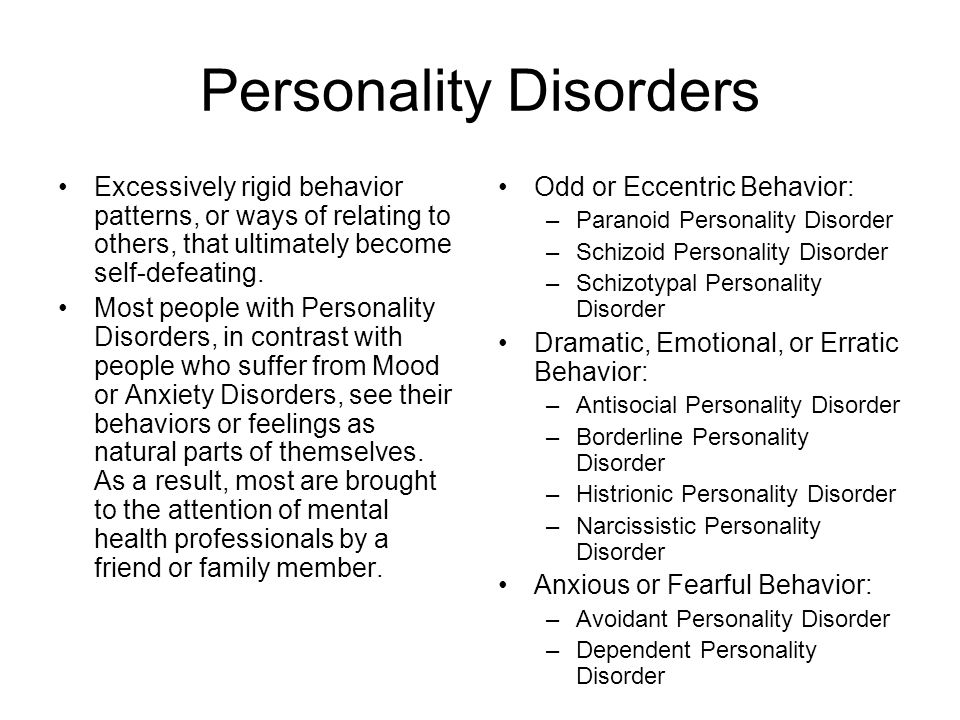 Most likely, both of these factors are combined. Children with a weak nervous system are more likely to acquire dependent personality disorder. However, the attitude of parents to a small child is no less important.
Most likely, both of these factors are combined. Children with a weak nervous system are more likely to acquire dependent personality disorder. However, the attitude of parents to a small child is no less important.
If the mother does not show enough warmth and care for the baby or treats him unevenly, the child begins to fear that he will be abandoned. Over time, the fear of being abandoned takes possession of the psyche and takes root in habitual behavior: the baby begins to believe that you can’t upset your parents with your desires, you have to be good, that is, obey them in everything. On the other hand, authoritarian overprotection can also form traits of a dependent character - with a domineering parent, a child understands that everything he needs will definitely be, the main thing is not to take the initiative, calmly accept someone else's care and not contradict the all-powerful elders. Later, the dominant role is occupied by the spouse, the boss, and maybe the teenage leader or the head of the gang.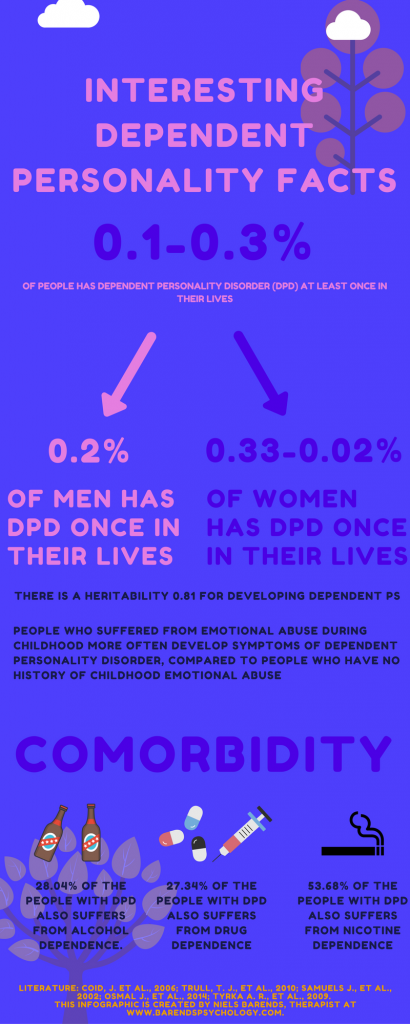 Yes, the fate of addicts is often determined by the environment in which they find themselves. In a class consisting entirely of "nerds", they will become executive smart girls, in the criminal community - thieves on the sidelines.
Yes, the fate of addicts is often determined by the environment in which they find themselves. In a class consisting entirely of "nerds", they will become executive smart girls, in the criminal community - thieves on the sidelines.
What to do?
As with many personality disorders, medication does not work (unless there are underlying problems like depression or anxiety that can be treated with chemo). In such cases, psychotherapy helps. The choice of method depends on what the patient wants to achieve: cognitive behavioral therapy (CBT) is good because it helps to quickly (in a few months) change behavior for the better and increase the patient's adaptability to life, but it does not provide great insights and a look deep into the problem . Psychoanalysis and psychodynamic therapy are more suitable for those who want to understand themselves in detail, talk about childhood traumas and, ideally, achieve some deeper internal transformations. The disadvantage of these methods is that the process takes much longer, and the quality of internal changes is difficult to formally measure - therefore, from the point of view of evidence-based medicine, CBT is most often ahead of other methods in terms of effectiveness.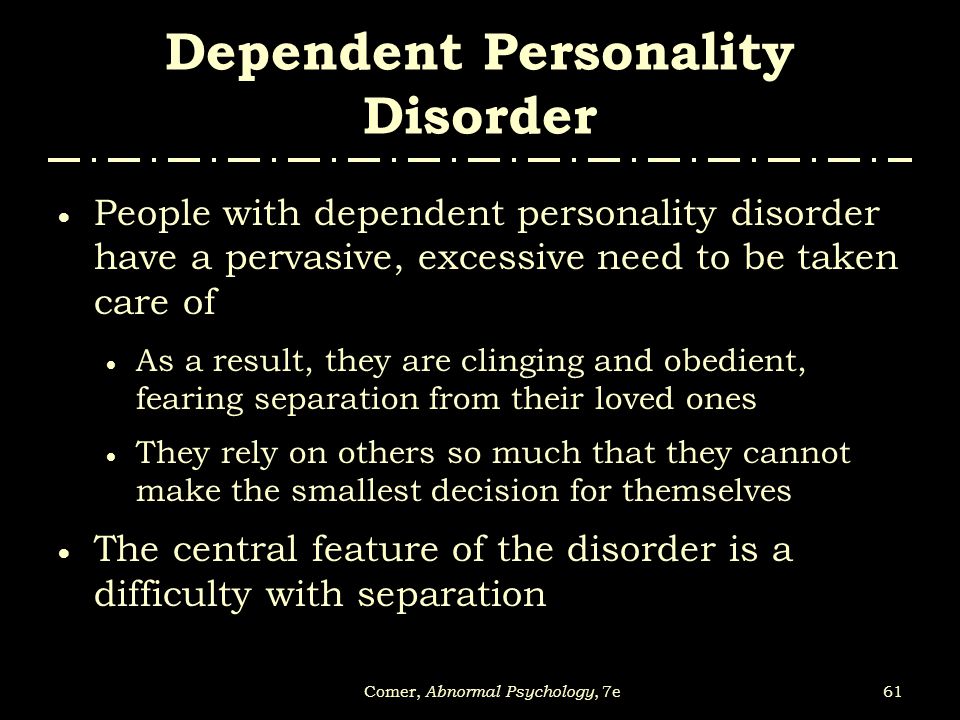 But the selection of a psychotherapist is a purely personal story, and it is impossible to say in advance that this or that method will help with a guarantee: you need to look for and try what suits you.
But the selection of a psychotherapist is a purely personal story, and it is impossible to say in advance that this or that method will help with a guarantee: you need to look for and try what suits you.
“Dependent personality disorder can be corrected in psychotherapy, but there are nuances,” says Denis Bukin. - Addicts are willing to work with a psychologist because ... they like to depend on an intelligent authority figure. And this is the main trap to avoid. The therapist must constantly be aware of the role that is being imposed on him, and his attitude towards it, and not try to "save" the addict. Directive methods that involve subordinating the client to the psychologist also do not work well with addicts, they only reinforce the feeling of helplessness in patients. The main thing that needs to be done during the correction is to increase self-esteem to an adequate level, step by step to be convinced together with the client of his abilities and virtues and bring him to the realization that the fear behind the inability to defend one's interests has no basis.